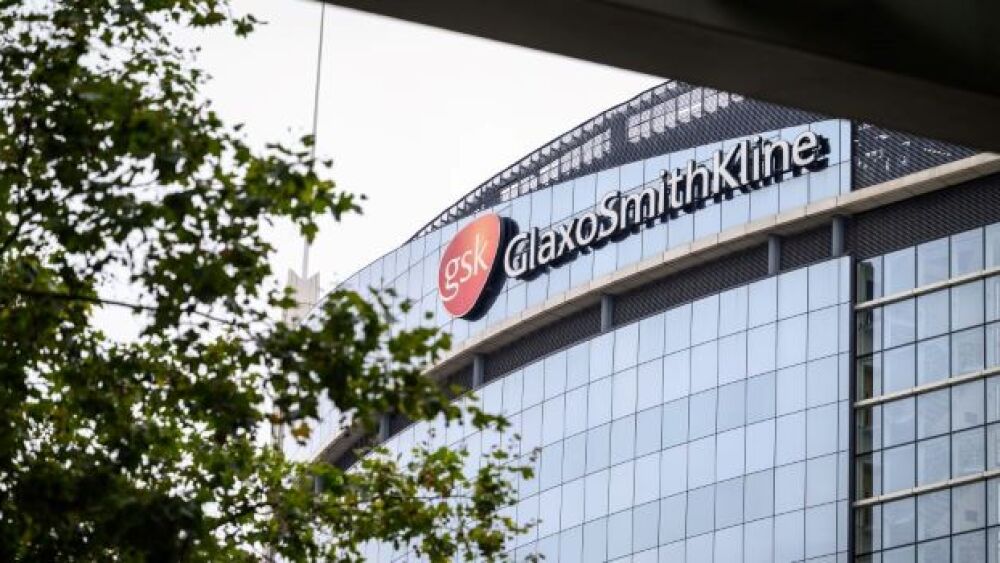GSK and Ionis released promising trial data showing their investigational antisense oligonucleotide, bepirovirsen, could significantly reduce HBsAg and viral DNA levels in patients with CHB.
Courtesy of Leon Neal/Getty Images
British pharmaceutical giant GlaxoSmithKline released promising results from the Phase IIb clinical trial B-Clear, showing that its investigational antisense oligonucleotide bepirovirsen could significantly reduce levels of both the hepatitis B surface antigen (HBsAg) and viral DNA in patients with chronic hepatitis B (CHB).
These interim findings, presented during an oral late-breaking session at the 2022 International Liver Congress of the European Association for the Study of the Liver (EASL), revealed that 24 weeks of treatment with 300 mg of bepirovirsen induced a 28% virologic response rate among patients who were also taking nucleoside/nucleotide analogs (NA) therapies. Meanwhile, the virological response rate was 29% in patients who were not on NAs.
By the end of treatment, 68% of patients on NAs and 65% of those without had HBsAg levels lower than 100 IU/mL.
Bepirovirsen was discovered by the California-based RNA therapeutics company Ionis Pharmaceuticals and was subsequently licensed by GSK under a collaborative development and licensing agreement.
“Chronic hepatitis B affects nearly 300 million people, with approximately 900,000 patients dying each year from its associated complications. These encouraging data support further investigation of bepirovirsen, both as monotherapy and in combination, as a potentially transformative new treatment option for patients with chronic hepatitis B,” Chris Cosico, senior vice president of development at GSK, said in a statement.
Designed to cut the production of viral proteins, bepirovirsen works by binding to hepatitis B RNA molecules and recruiting liver enzymes to digest and deactivate this RNA. The drug candidate also stimulates the body’s immune response, which could help sustain the virus’ clearance from the body.
With over 500 CHB patients enrolled, the Phase IIb B-Clear seeks to evaluate whether bepirovirsen’s activity is effective at eliminating both viral DNA and its protein products from the blood and if it can do so safely. B-Clear consists of two cohorts running in parallel, one for patients who were taking NA treatment at the start of the study and the other for those who were not. Bepirovirsen was given at 300-mg doses for 12 or 24 weeks. The trial’s primary outcome of interest was the virologic response, defined as having unquantifiable levels of HBsAg and viral DNA in the serum or plasma.
Aside from its strong and promising efficacy profile, bepirovirsen also proved safe, with only around 1% of trial participants experiencing serious treatment-related adverse events.
“The data presented today are a promising step forward for the millions of people living with chronic hepatitis B worldwide. Specifically, the reduction in hepatitis B surface antigen and HBV DNA to below the lower limit of quantification has the potential to be clinically meaningful and lead to functional cure.” Man-Fung Yuen, principal investigator of B-Clear and chief of the Division of Gastroenterology and Hepatology at the Queen Mary Hospital, The University of Hong Kong, said in a statement.
“This could help people living with CHB and healthcare providers manage the long-term consequences of CHB which include the social burden as well as the risk of developing life-threatening liver complications,” he added.
Bepirovirsen is also undergoing additional assessments in two other Phase II trials: One is testing its sequential combination with pegylated interferon treatment, while the other is using the drug candidate with GSK’s targeted immunotherapy for CHB.






